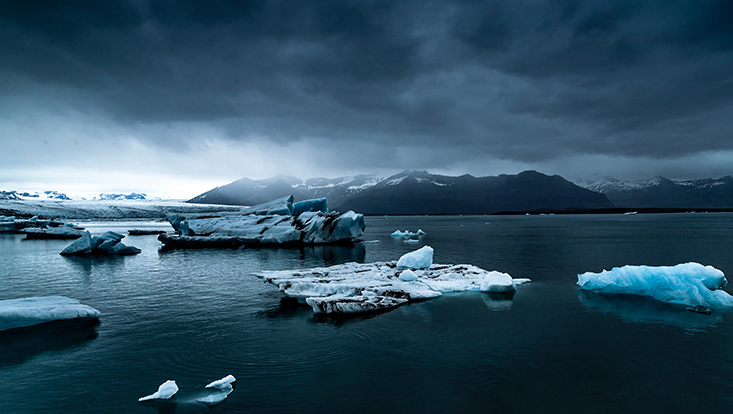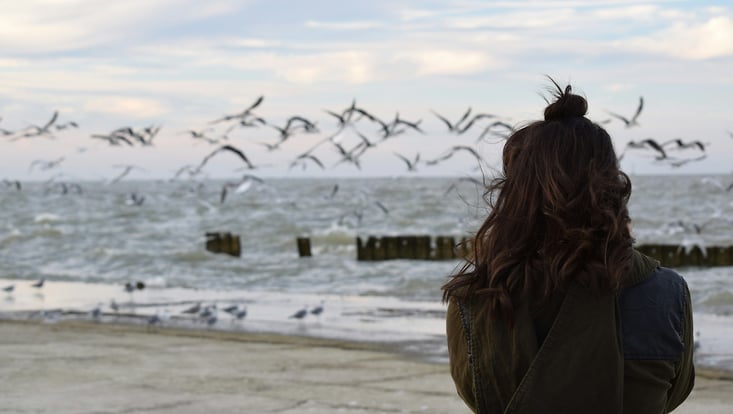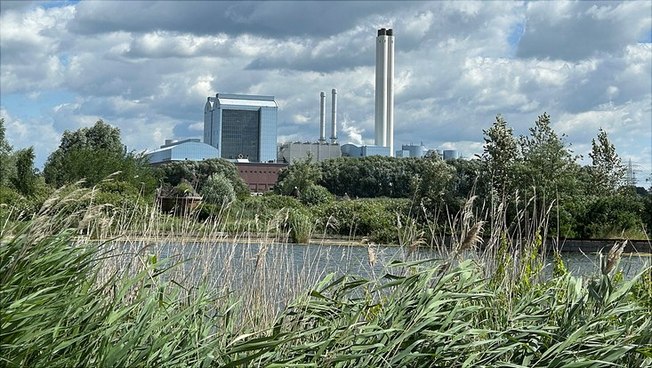IPCC Special Report on the Ocean and Cryosphere (SROCC)The IPCC confirms it: The time to act is now!
25 September 2019, by Stephanie Janssen

Photo: unsplash - Emma Francis
Extreme events are now becoming more and more commonplace: The sea level is rising faster than projected in the last IPCC report, glaciers and permafrost regions are melting and thawing faster than expected, and cyclones are growing in intensity. These are among the key findings of the IPCC’s third Special Report, which focused on the ocean and cryosphere (ice-covered regions) and was officially released today in Monaco. Prof. Beate Ratter from Universität Hamburg’s Center for Earth System Research and Sustainability (CEN) was one of the report’s lead authors.
Taking baby steps towards climate protection won’t be enough; the “IPCC Special Report on the Ocean and Cryosphere in a Changing Climate” (SROCC) is very clear on this point. The global community has to change course, and agree on a way in which societies can be fundamentally transformed. And, to provide a basis for doing so, federal governments have to behave in a trustworthy and reliable manner. “But it’s not just about imposing new rules from the top down,” explains Ratter. “A real transition to successful climate change adaptation can only work when impulses from within society are combined with political measures.”
Time is of the essence, because not only is the sea level rising faster than expected; extremely warm phases in the ocean like El Niño and La Niña are now coming at shorter and shorter intervals. According to the report, in the future, extreme events will more often manifest in series, also referred to as cascades. As a result, at-risk regions may have very little time to recover from them, or face several problems simultaneously.

The topics “ocean” and “cryosphere” are closely linked. For example, as global warming progresses, mountain glaciers are now melting. Consequently, large amounts of water flow out to sea, causing the sea level to rise. At the same time, the water lost through the melting ice is water that is no longer available for alpine agriculture. Roughly 10 percent of the global population lives in alpine regions, and 11 percent in coastal regions. As such, this development could directly affect one in five people living on this planet.
For some coastal regions and island countries, this trend could soon become catastrophic. The report also discusses how measures to adapt e.g. to rising sea levels can be sensibly developed and implemented. According to Ratter, climate change adaptation isn’t a technical problem; it’s a societal one. That being the case, a new law or major investment alone may not change anything. “If they’re not developed together with the local populace, and supported by it, new measures and regulations often meet with resistance, hostility or boycotts,” says Ratter. In this regard, the report also stresses that integrating and capitalizing on local expertise and wisdom is vital to meaningful change. Moreover, from a financial standpoint, prevention is always less expensive than rebuilding after catastrophe has struck.
Over the course of two years, more than 100 experts from 80 countries reviewed the latest research and collated their findings. The resulting report offers a broad cross-section of the current state of research. All projected developments are accompanied by assessments of how likely they are to occur.
Beate Ratter is one of the lead authors of SROCC Chapter 6, “Extremes, Abrupt Changes and Managing Risks.” She also contributed to the text boxes on “Governance” and “Low-Lying Islands and Coasts.”
The Professor of Integrative Geography is an expert on climate change impacts, especially for small islands and coastal areas. She currently works at the Center for Earth System Research and Sustainability (CEN) and at the Cluster of Excellence for climate research “Climate, Climatic Change, and Society” (CLICCS) (both at Universität Hamburg), as well as the Institute of Coastal Research, Helmholtz Zentrum Geesthacht.
Link to the IPCC Special Report on the Ocean and Cryosphere (SROCC)
For questions:
Prof. Dr. Beate Ratter
Universität Hamburg
Center for Earth System Research and Sustainability (CEN)
Tel.: +49 40 42838-2997
E-Mail: beate.ratter"AT"uni-hamburg.de
Stephanie Janssen
Universität Hamburg
Tel.: +49 40 42838-7596
E-Mail: stephanie.janssen"AT"uni-hamburg.de


